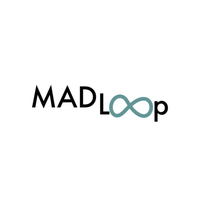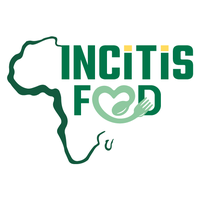
FrontAg Nexus is a project co-funded by the EU program PRIMA. Starting in May 2023, it will focus on sustainable agri-food practices, and will address the pressing challenges of climate change, natural resource scarcity, and food insecurity in the Mediterranean region, particularly in Israel, Italy, Morocco, Tunisia, Turkey, and Jordan.
The Mediterranean region, a climate change hotspot, is facing numerous difficulties within its food systems. FrontAg Nexus aims to help shape the food production by incorporating climate-smart and water-saving technologies, such as hydroponics, aquaponics, recirculating aquaculture, vermiculture, and insect farming for feed and fertilizer.
The project's expected impacts include increased resilience to climate change and improved socio-economic conditions for vulnerable populations. FrontAg Nexus will introduce renewable energy sources, promote climate neutrality, control harmful substances, and increase the availability of nutritious and safe foods. With the adoption of a water, energy, food, and ecosystem (WEFE) Nexus thinking and a participatory multi-actor and multi-contextual approach, the project will contribute to food and nutrition security through year-round production of fish protein, vegetables, and fruits.
“We know about the toxic challenges our global food system is facing, among others climate change, natural resource scarcity and degradation, a growing and more urban population and food waste, all leading to food and nutrition insecurity and pressure on our precious natural resources. Frontier agriculture can contribute to addressing these challenges by promoting climate smart and water saving technologies such as hydroponics, recirculating aquaculture, or insect farming,” said Prof. Gertrud Buchenrieder, Project Coordinator. “FrontAg Nexus will address these challenges in the Mediterranean Region, which is one of the climate change hotspots in the world thus contributing to the community of practice”.
By utilizing hydroponics, aquaponics, insect farming and vermiculture, and fostering collaboration among all relevant stakeholders along the supply and value chain, including refugees, women and young adults, start-ups, and small and medium enterprises (SMEs), FrontAg Nexus strives to address the challenges within the European food systems.
To learn more about the FrontAg Nexus project and stay up to date, visit https://frontagnexus.eu and follow us on social media:

This is a Horizon Europe project that aims to identify ways in which effective nature-based therapy (NBT) and a broader green care framework can be scaled-up to improve adult mental health and wellbeing equity while contributing to multiple socio-ecological co-benefits.
Green care is a three-scale continuum from nature-in-everyday-life (e.g., the existence of green and blue infrastructure for viewing and walks) to nature-based health promotion (the promotion of active interaction with nature such as gardening and conservation) to nature-based therapy (the provision of treatment for individual patients).
There is burgeoning evidence that green care (i.e., the provision of health and social services via contact with nature) can be used to promote mental health and wellbeing for the general population and particularly for underprivileged populations with greater risk for mental health disorders.
Specific objectives:
1. Understanding of the current state of NBT and green care
2. Evidence on how NBT benefits mental health
3. Correlation between exposure to nature-in-every-day-life and wellbeing
4. Empowerment of green care actors
5. Dissemination of project’s results
To learn more about the GreenME project and stay up-to-date, visit: https://greenme-project.eu/

Soilless agricultural systems (SAS) systems are gaining popularity due to their potential to overcome challenges in traditional soilbased agriculture. They reduce resource use and emissions while increasing fresh produce access in urban areas. However, SAS implementation faces limitations due to high costs and reliance on imported resources.
The MADLoop project aims to develop waste material recovery strategies for local SAS resources to enhance self-sufficiency and food security in urban informal settlements in Nairobi. It seeks to integrate waste valorization for SAS development and assess agronomic and environmental implications. The project also focuses on increasing availability and forming a network to encourage material circularity.
The project's methodology comprises three main pillars, the first involving material flow analysis to quantify existing material and resource flows focusing on revalorization into SAS substrate, nutrients, and construction materials. The second pillar involves the applicability of potential materials, requiring their collection and characterization to identify the suitability for crop production, additionally testing these materials in various SAS structures and research installations. The final pillar addresses environmental analysis and upscaling feasibility, using life cycle assessment to determine the environmental impact of recovered material application in SAS.
The MADLoop project expects significant impacts in scientific, economic/technological, and societal aspects. It aims to generate new knowledge on waste resources valorization strategies. A successful implementation can create new markets, reduce reliance on imports, and investment costs for SAS. The project's outcomes can lead to increased local resilience, reduced production emissions, and improve resource availability and affordability, extending beyond the assessed area, benefiting small-scale farmers, local citizens, and food production in various regions.

This is a European Union-funded initiative, has been working since January 2023 with a focus on sustainable agri-food practices. A number of African countries are involved in this project, including Kenya, Ghana, Nigeria, Sierra Leone, Cameroon, and Gabon, which focuses on food security and the environmental impacts of food production.
By fostering collaboration and co-creation, INCiTiS-FOOD seeks to develop advanced circular agri-food technologies, practices, and business models. Its ultimate goal is to establish an inclusive and sustainable food system that is accessible to all. With the establishment of 8 living labs spread across 6 countries, and a strong emphasis on user engagement, the project adopts a Lean Start-up Methodology to introduce innovative technologies, services, practices, and products. This approach empowers stakeholders to actively participate in shaping the future of food and nutrition in Africa.